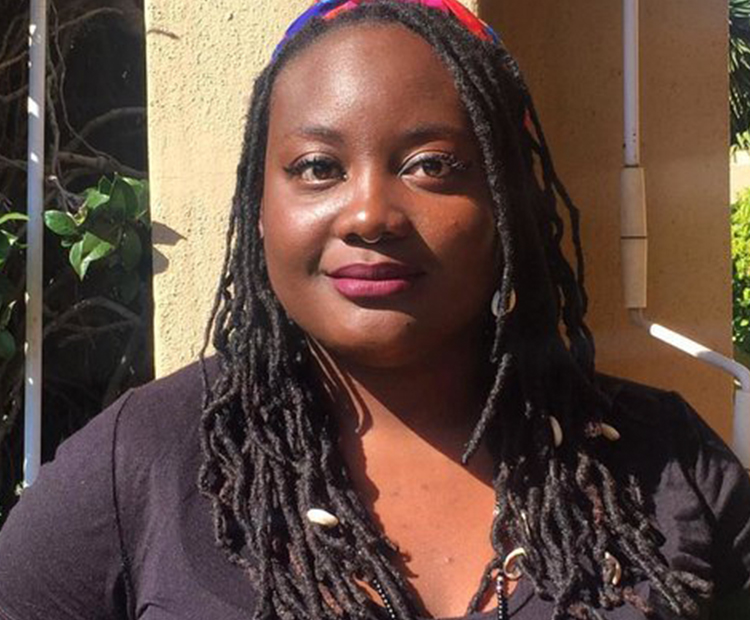In February 2021, award winning short story writer Efemia Chela was our Quay Words and English PEN international writer-in-residence.
We had hoped to host Efemia at the historic Exeter Custom House on the Quayside, but the national lockdown meant this was not to be. Together, we worked with Efemia to create a digital residency which would allow her to travel to the city and explore its past, present and future.
Here, Efemia tells us about the power of writing to help us explore new places and how she approached her digital residency.

Residencies are precious. They allow you to travel, an act which is thinking about yourself and your creative work through the strangeness of another place. Distance from home changes the work and how you view it, new settings adjust the writing approach, unfamiliar sights spark ideas. I was looking forward to going to Exeter and setting up my little idea workshop of one in the Exeter Custom House. COVID-19 made this impossible, and like billions of other people, I had to reconfigure, redream. And so I set about dreaming a place I’d never been to which I would now write about. It’s fairly common for most writers who through the process of creation experience the hallucination of places unseen, the texture of feelings unfelt, and I felt invigorated.
I wasn’t sure what I wanted to write about at first, but inspired by the Custom House, I decided to experiment with historical fiction and centre the narrative on Akuba, an enslaved woman in the 1806. History, so the adage goes, is told by the victors. But what determines a victor? What counts as victory? What about history from below? Or history from other angles? One of the parts of writing I love most is research. When creating at a distance, secondary accounts and online archives become indispensable as does Google Maps. And luckily for me Exeter is a city so rich in history everything is recorded. Exeter Memories, the Runaway Slaves in Britain archive and Professor Lucy MacKeith’s research on slave ownership in Devon were some of the most intriguing sources I used in creating my commission. I looked at portraits of dock labourers, read speeches from the abolition movement, tried to imagine the smell of a working Devon kitchen, surveyed the bones of 19th century ships and thought hard about what kind of story I would tell. Or rather, what story Exeter would tell me.
Some of the sources of information were less obvious but ultimately proved very useful. A couple of months before my residency started I travelled to Durban, another UNESCO City of Literature, on holiday and was struck by some of the similarities between it and Exeter. Both port cities with Custom Houses, both zones where different cultures, goods and ideas mixed wildly in the 19th century, both implicated in the slave trade and indentured. South African historian Isabel Hofmeyr (2019, p.7) writes of the Durban Custom House:
“The Custom House was the most imposing building on the Durban waterfront and [George] Rutherford [the collector of Customs] was possibly trying to provide incoming passengers with the requisite vista – an echo of the grand customs houses of Empire, whether in London, Dublin or Calcutta, which all faced onto water and were always pictured from this vantage point”.
Reference: Isabel Hofmeyr (2019): Imperialism Above and Below the Water Line: Making Space Up (and Down) in a Colonial Port City, Interventions, DOI: 10.1080/1369801X.2019.1659172.
So hints of Exeter were closer than I had imagined. Centuries old trade and conquest had linked a subtropical city in South Africa, at least architecturally, with the Exeter quayside, 13,993 km away. How to mourn these links and the cruelty of slavery and colonialism? How to celebrate my wonder at these connections through writing? Could a creative piece bridge the gap? And could I pull all of this off in a way that was stimulating to me as a writer and entertaining to a reader? It was a challenge. An adventure, much like the one I set Akuba my main character on. I’m still travelling sideways in time with her but I can’t wait for you to read it when it’s complete.
